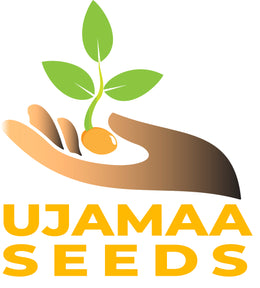Wild Bergamot (Bee Balm)
Monarda fistulosa
Approximately 50 seeds per pack.
Germination ~ 62% March 2025
Origins and History
Wild Bergamot (Monarda fistulosa) is a North American native in the mint family (Lamiaceae), long valued by Indigenous communities and later adopted into settler gardens for its fragrance, beauty, and practical household uses. Unlike many “heirloom” crops that were intensively domesticated for larger fruits or seeds, Wild Bergamot’s heirloom story is mainly about selection and stewardship—people repeatedly choosing plants with especially aromatic leaves, strong stems, abundant blooms, and reliable regrowth for home gardens, pollinator plantings, and herb use. Over generations, this human preference helped spread and maintain favored local strains while the plant remained close to its wild form, thriving across prairies, open woods, and dry-to-medium soils.
Appearance and Characteristics
Wild Bergamot forms upright clumps about 2–4 feet tall, with opposite, fragrant leaves (often described as oregano-like) and lavender to pinkish “pompom” flower heads that bloom in mid-to-late summer. Its stems can be slightly hairy, and it spreads gradually by seed and rhizomes, making it a strong candidate for naturalized plantings and perennial herb borders. It’s also well known for drawing in bees, butterflies, and hummingbirds.
Culinary Uses
The leaves and flowers are commonly used as a fragrant herbal tea (fresh or dried), and the blossoms can be used as a garnish. The flavor is aromatic—minty, herbal, and sometimes “oregano-meets-citrus.” In the kitchen, the herb can be used much like a seasoning: chopped fresh leaves in salads, blended into sauces, or dried and added to breads and savory dishes.
Growing Tips
Wild Bergamot is generally hardy in USDA Zones 3–9 and performs best in full sun to part shade with well-drained soil; once established it can tolerate some drought. For seed starting, the key is that seeds are very small and need light to germinate, so sow on the soil surface (or barely covered) and press in gently rather than burying. Some growers use cold stratification, while other reputable native-seed sources note it can germinate well without it—either way, surface sowing and consistent moisture during germination are the big wins.
Harvesting Guidance
For tea and culinary use, harvest healthy leaves anytime once the plant is established, with peak aroma often just before flowering. For flowers, clip blooms when they are freshly opened and vibrant; dry them quickly in a well-ventilated spot out of direct sun to preserve fragrance. If you want seed, allow some flower heads to mature and dry on the plant, then collect when they’re fully dry. In garden management, established clumps appreciate water during prolonged dry spells, and plants can be cut back after flowering or left for winter interest and wildlife value, then tidied in late winter/early spring.




